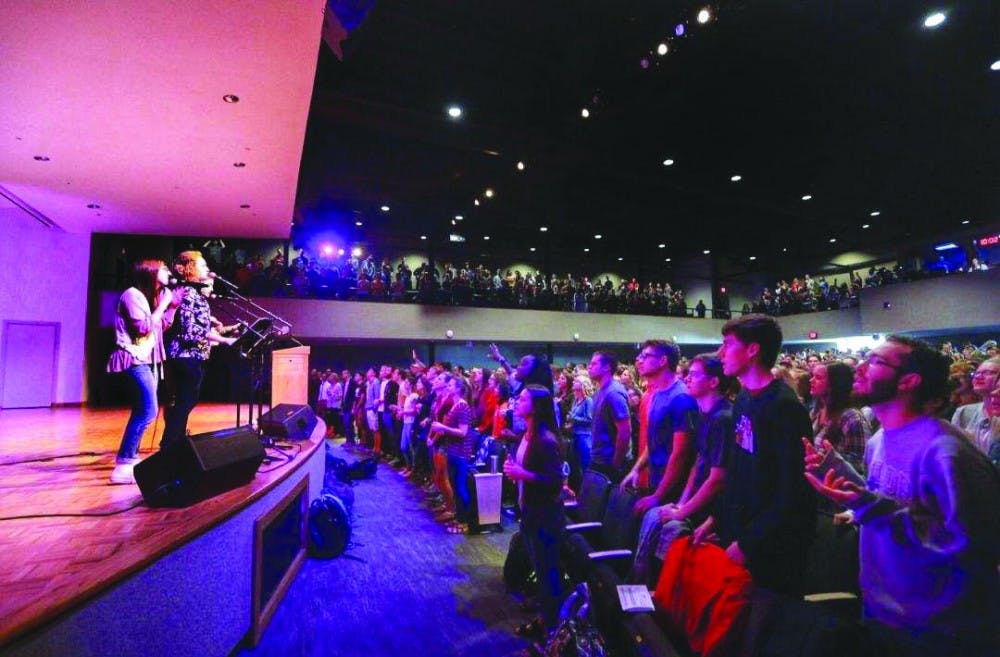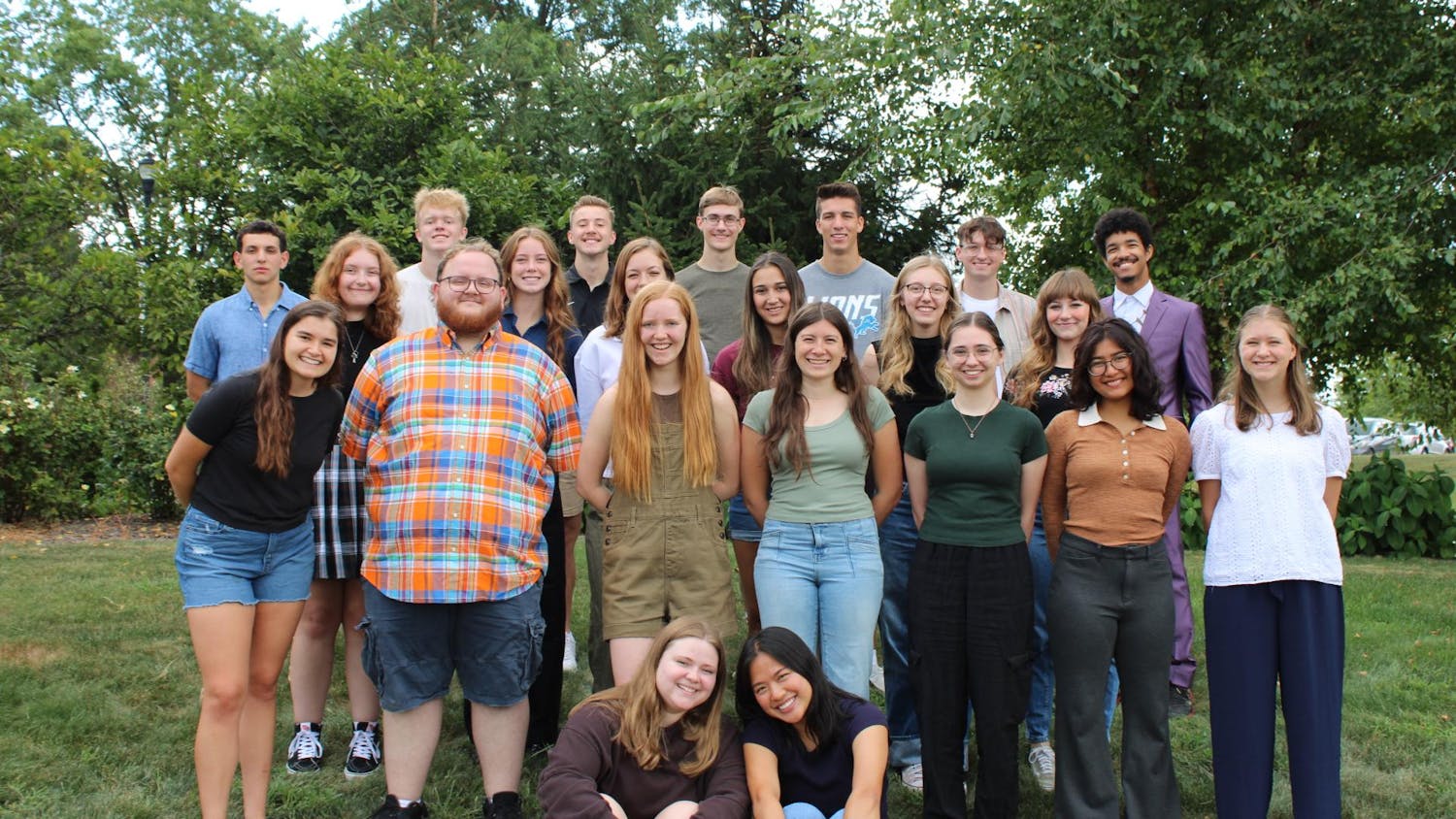By Hoback Fisher | Contributor
Dear Taylor Community,
The Life Together Covenant states that our attendance in chapel "is understood as a mature response to our community goals." Further, it declares "individual honor and commitment to the Taylor community will motivate us to attend chapel." Due to long term trends, and specific recent events, I wish to publicly challenge the assumption that chapel is productive toward these ends.
The community goals of Taylor are to disciple believers and foster their academic growth. I believe recent chapel messages have shown themselves to be antithetical to the stated beliefs and goals of the community. On Monday, Oct. 2, the chapel message was titled "Chapel on Chapel," meta-chapel if you will. I believe that the framework of ideas set forth in that hour is unworthy of being categorized as ministry or academia. Further, those particular ideas are indicative of the broader message conveyed by our chapel program.The first portion of the Oct. 2 chapel consisted of a small number of selected students briefly sharing their remarkably unvaried personal experiences with the chapel program. While listening to experiences is valuable, isolated anecdotes do not constitute quality discussion of something as vital as chapel. The experiences shared on Oct. 2 were not established as a consensus. Many students do not approve the current ethos of the chapel program. The insufficiency of experience alone to inform productive discourse is recognized throughout academic and Christian history. Academia and the Church have, to differing extents, relied upon reason, tradition, scripture and other epistemological sources to contextualize and understand experience. It is the lack of this crucial context that renders snippets of experience impotent to generate meaningful discourse.Following the student speakers, Campus Pastor Jon Cavanagh enumerated seven "guiding principles" of chapel. I do not disagree with anything he said, but rather am appalled that he said nothing at all. When goals are declared, it is only meaningful when critical questions are addressed. Such questions surrounding chapel include much-needed clarification of terms like scripture engagement, diversity, etc. What constitutes diversity and scripture engagement? Why are these good goals? What does effectively meeting these goals look like? It is unproductive to affirm a guiding principle when the principle is undefined. It gives the illusion of credibility to something that may or may not be credible.My frightening synthesis is this: in a chapel devoted to discussing what is said in chapel, nothing substantive was said. To boot, as a junior who has faithfully attended chapel for over two years, I have yet to find any description of what chapel is supposed to be, or how it promotes our community goals. As chapel claims to accomplish so little in the way of ideological deliverables, it is difficult to evaluate if the resources spent in the production and attendance of a chapel service are effectively employed. This is the thesis of my discontent. The chapel program is ideologically unaccountable to any standard, and offers few means to discuss negative experiences effectively. Any institution structured without effective means of self evaluation does not long remain in orthopraxy.I further claim that the meta-chapel is representative of the chapel program of recent years. During the 2016-17 school year, the chapel theme was "convicted civility." The stated goals were to discuss how Christians are to engage with salient, divisive issues. With few exceptions, content was narrowly centered on social justice issues of race and gender. Critical race theology was consistently woven into the fabric of most messages through the lens of experience, while other intellectual approaches were misrepresented or neglected. Perhaps a year-long discussion of critical race theory is exactly what campus needed. I know many think so; I know many do not. The concern is that no one ever bothered to explain why our chapel program was driven by such issues, or worse, that scripture was rarely brought into the conversation.This fall, the stated chapel theme is "cultivating Christian community." With the exception of Reverend Nirup Alphonse, no one has discussed what Christian community is or how it pertains to discipleship. One might expect to discuss questions like the following: What is community in the Christian context? How is community best cultivated? These questions have been unacknowledged. Critical race theology is still discussed with greater frequency than any other topic, and with only vague connections to "community." No explanation is made as to why other social, spiritual and academic topics are ignored. It is difficult to disagree with messages under the "community" heading, especially when in the context of chapel, the word itself remains unexamined. As a result, the leadership of our chapel program remains unaccountable in any academic sense of the word.It is my unconfirmed suspicion that we are discussing only what is politically convenient to discuss: that is, the social issues du jour. The current guiding principle of the chapel program is the principle of least resistance to cultural norms. If the chapel program were to present a coherent, alternative explanation, there would be a potential for growth of all who attend, even if significant portions of the student body disagreed with the explanation. Regrettably, such intellectual engagement is not evident.I happen to be a student who consistently, negatively experiences chapel. In my view, chapel is no longer a discourse community of academic discipleship. No defense has been made against such a charge; indeed it seems that solemn thought has not even been given to the concern by those who coordinate the chapel program.I implore any who are qualified to give answer to any of the questions raised above to step forth and give public, written remonstrance of my ideas.With deep concern,Hoback Fisher





